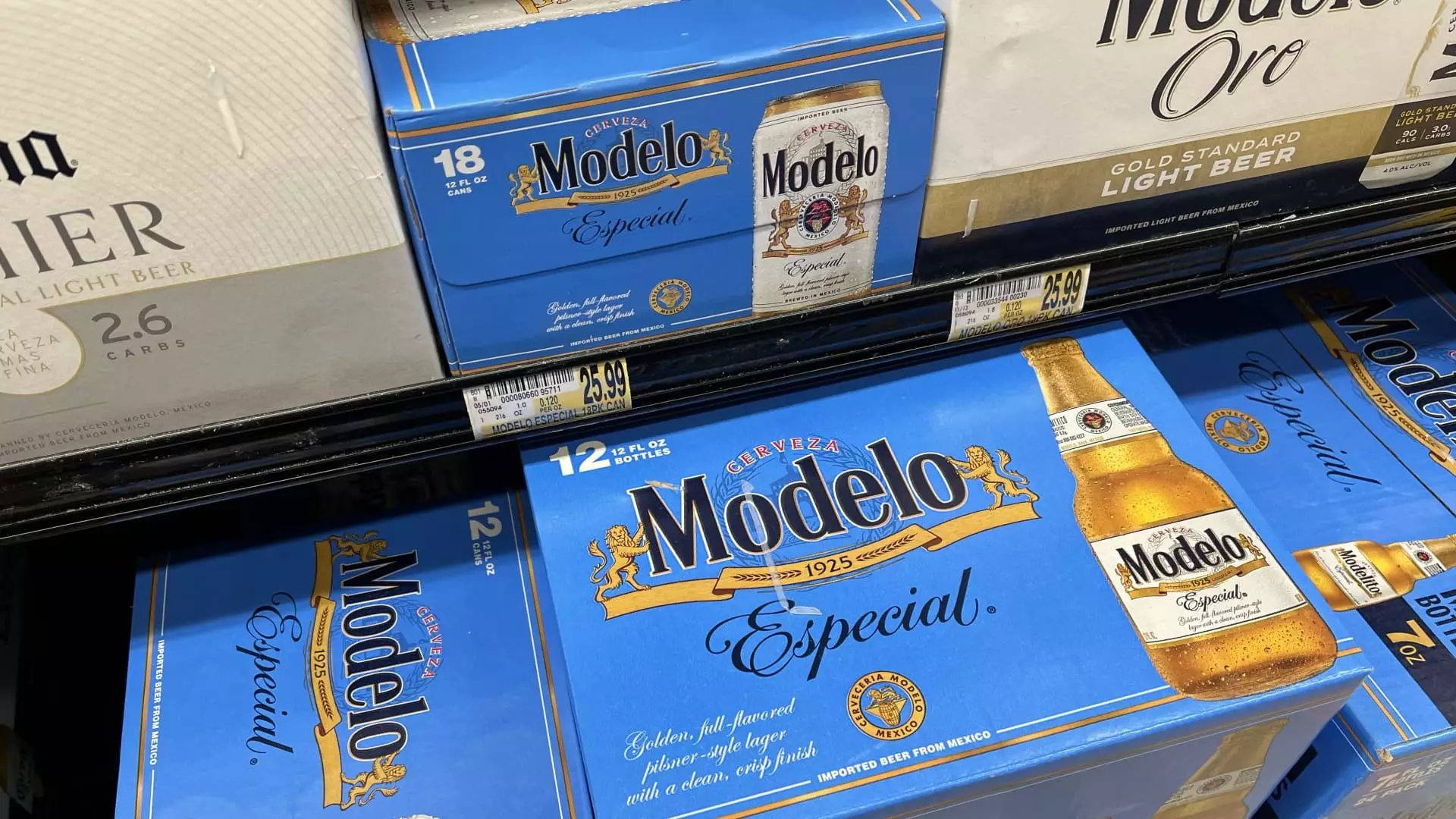Constellation Brands, the powerhouse behind beloved beer labels like Modelo and Corona, has recently taken a sharp turn for the worse in its market predictions. With a significantly weaker outlook for its fiscal 2026, one cannot help but raise an eyebrow at the company’s future in a landscape increasingly defined by tariffs and shifting consumer preferences. These external pressures, coupled with the internal strategy reevaluations, signal a turbulent path ahead for the firm, which has long thrived on a robust portfolio of alcoholic beverages.
The imposition of a 25% tariff on imported canned beer, which comes into effect amidst an already challenging economic backdrop, is a major catalyst for Constellation’s pessimism. Imported entirely from Mexico, the tariffs hammer the company’s cost structure, making it increasingly difficult to maintain profit margins on products that amount to 78% of its net sales for the quarter. While President Trump’s announcement of reducing certain tariffs to 10% offers some glimmer of hope, it does little to alleviate the burdens placed on specific, sector-targeted duties, such as those imposed on aluminum. It raises the critical question – how will Constellation adapt to this changing climate without stifling its growth?
Shifting Strategy: A Reassessment of Core Brands
In what appears to be a strategic pivot in light of economic obstacles, Constellation has outlined plans to divest its “mainstream” wines and focus only on premium brands priced at $15 or above. This move is not merely a rebranding effort; it resonates deeply with a broader trend in consumer preferences toward quality rather than quantity. The decision follows a disappointing performance from the company’s wine and spirits segment, which has faltered over recent quarters. However, one must consider whether this shift is too late to save face in a rapidly declining market.
Moreover, the sale of the Svedka vodka brand to Sazerac illuminates Constellation’s urgency to shed fat and refine its offerings. This raises both optimism and skepticism – can a focus on high-end offerings really boost sales metrics, particularly when so much of the market is moving towards craft, custom, and locally-produced options? While efforts to streamline the product lineup may yield benefits, they can also risk alienating a customer base that has long been loyal to its diverse portfolio.
Stock Market Reactions: Wall Street’s Mixed Signals
The immediate market reactions following Constellation’s announcements paint a paradoxical picture. On one hand, the company’s stock saw an impressive uptick of 7% post-tariff news, seemingly buoyed by a sense of hope surrounding President Trump’s trade plan. Yet, this optimism was swiftly overshadowed once investors absorbed the magnitude of the company’s lowered guidance.
After an impressive earnings report that beat Wall Street expectations, the stark reality of its future projections sent shares plummeting by 3% in after-hours trading. It’s a fitting reflection of the contemporary stock market: one where fleeting periods of optimism can quickly turn into despair as underlying vulnerabilities come to the forefront. Investors must be cautious; the euphoria surrounding one quarter’s numbers can evaporate when faced with disheartening projections, like the anticipated earnings per share for fiscal 2026 being pegged a staggering $1.37 lower than analysts’ forecasts.
A Call to Reinvigorate the Brand
In this challenging environment, Constellation Brands stands at a critical junction. The traditional playbook may no longer suffice. Can they find new ways to innovate within their flagship beer segment, or will their attempts at focusing solely on high-end brands result in missed chances to engage with consumers? They must also grapple with the implications of static beer sales amidst dwindling growth; it’s crucial to not only adapt but to anticipate and define the future.
The journey ahead is fraught with uncertainty and hesitation. As Constellation Brands wrestles with tariffs, evolving market trends, and strategic pivots, stakeholders must be keenly aware of each decision’s ramifications. Ultimately, if they don’t take decisive, brave steps towards true reinvention, they could find themselves outpaced and overshadowed in a landscape that’s continuously shifting at an unprecedented pace.

